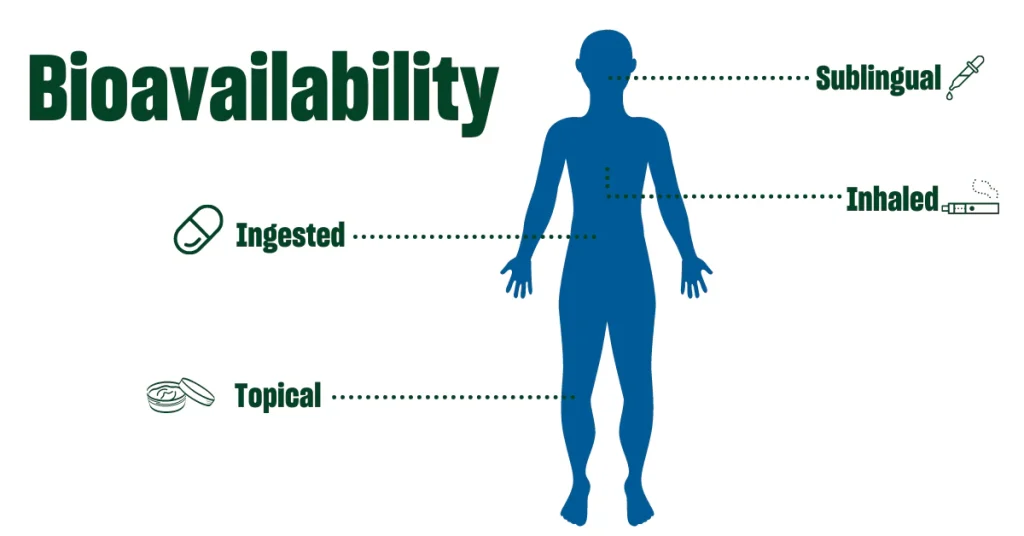
Bioavailability refers to how well our bodies absorb and use nutrients. Even if you consume a lot of a vitamin or mineral, its effectiveness depends on how well it’s absorbed.
When it comes to nutritional supplements, we often focus on the quantity of vitamins and minerals they contain. However, the quantity isn’t the only factor that determines how much of these nutrients our bodies can actually absorb and utilize. The concept of bioavailability plays a crucial role in nutrient absorption.
What is Bioavailability?

Bioavailability refers to the rate and extent to which a nutrient, drug, or other substance is absorbed and becomes available at the site of action. In simpler terms, it’s the degree to which our bodies can use a particular nutrient. Factors such as the form of the nutrient, the presence of other substances, and individual physiological factors can influence bioavailability.
Factors Affecting Bioavailability
Several factors can affect the bioavailability of vitamins and minerals:
1. Nutrient Form:
Synthetic vs. Natural: Synthetic vitamins are often isolated and chemically produced, while natural vitamins are derived from whole foods. Natural vitamins are often more readily absorbed due to the presence of cofactors and other nutrients that enhance bioavailability.
Mineral Chelate: Mineral chelates are mineral compounds bound to amino acids, which can improve their absorption.
2. Dietary Factors:
Fiber: Excessive fiber intake can interfere with the absorption of certain minerals, such as iron and zinc.
Oxalates: Oxalates, found in foods like spinach and rhubarb, can bind to minerals and reduce their absorption.
Phytates: Phytates, present in grains and legumes, can also hinder mineral absorption.
3. Individual Factors:
Age: As we age, our digestive system may become less efficient, affecting nutrient absorption.
Health Conditions: Certain health conditions, such as inflammatory bowel disease, can impair nutrient absorption.
Medication: Some medications can interact with nutrients and reduce their bioavailability.
Why Bioavailability Matters
Understanding bioavailability is crucial for optimizing nutrient intake. Even if you’re consuming a high amount of a particular vitamin or mineral, if it’s not well-absorbed, you may not be getting the full benefit.
Tips to Enhance Nutrient Bioavailability
Choose Whole Foods: Whole foods, such as fruits, vegetables, and lean proteins, provide a wide range of nutrients and cofactors that can enhance absorption.
Consider Natural Supplements: Natural supplements derived from whole food sources are often better absorbed than synthetic ones.
Pair Nutrients Wisely: Some nutrients work synergistically. For example, vitamin C can enhance the absorption of iron.
Optimize Your Diet: A balanced diet with a variety of foods can help ensure adequate nutrient intake.
Consult a Healthcare Professional: If you have concerns about nutrient deficiencies or absorption issues, consult a healthcare professional for personalized advice.
By understanding the factors that influence bioavailability, you can make informed choices about your dietary intake and supplement use to maximize the benefits of essential vitamins and minerals.
